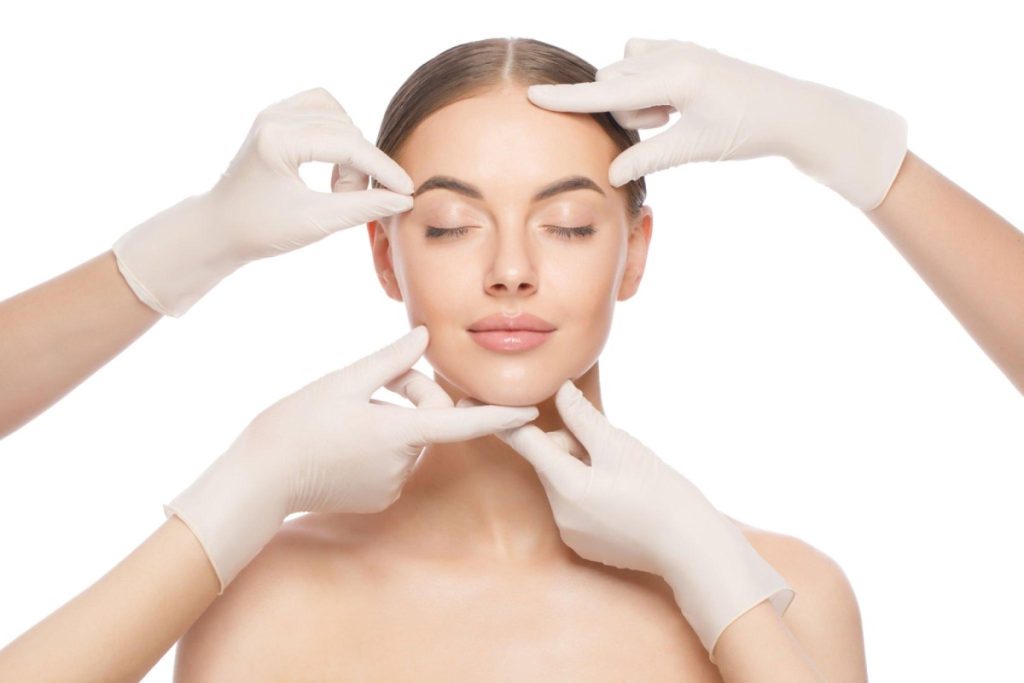Skin Care Treatments – Welcome to the world of skin care treatments! Taking care of our skin is essential to maintain its health, glow, and radiance. Whether you’re looking to fight off signs of aging, clear up acne, or simply pamper yourself, there’s a skincare treatment out there for you. From chemical peels to facials, from serums to creams, the options are endless.
In this blog, we’ll explore the different types of skin care treatments available today and give answers to frequently asked questions.
Get ready to give your skin the love and attention it deserves!
Table of Contents
7 Types of Skin Care Treatments
Skin care refers to the repetition of taking care of one’s skin to continue its health, appearance, and overall well-being. Good skincare habits involve keeping the skin clean, hydrated, protected from the sun, and nourished with essential nutrients.
There are many types of skin care treatments available, each targeting specific skin concerns. Some of the most prevalent skin care treatments include:
HydraFacial®
HydraFacial® is a popular and effective skincare treatment that deeply purifies, exfoliates, and hydrates the skin. It uses a special device that delivers a series of serums to the skin, including antioxidants and hyaluronic acid, to nourish and protect the skin.
The treatment is gentle, non-invasive, and suitable for all skin types. HydraFacial® can improve the entrance of fine lines, wrinkles, hyperpigmentation, and acne, leaving the skin looking bright, plump, and youthful.
Advanced Skin Care Line
Advanced skin care lines are professional-grade skin care products that use advanced technology and high-quality ingredients to address specific skin concerns. These products are usually sold exclusively by licensed estheticians and dermatologists.
Advanced skin care lines may include a range of products, such as cleansers, toners, serums, and moisturizers, each formulated to target a specific skin concern, such as aging, acne, or hyperpigmentation. These products may also contain active ingredients such as retinol, alpha-hydroxy acids, and antioxidants to improve the texture, tone, and overall health of the skin.
Microdermabrasion
It is a non-invasive skin resurfacing treatment that uses a special device to mildly exfoliate the outer layer of lifeless skin cells, revealing smoother, softer, and more youthful-looking skin. It can help decrease the appearance of fine lines, wrinkles, hyperpigmentation, and acne scars.
Microdermabrasion is suitable for most skin types, but it may not be appropriate for those with very sensitive skin or active acne. It’s a relatively painless and quick procedure that requires no downtime, making it a popular choice for those who want to rejuvenate their skin without any major disruptions to their daily routine.
Chemical Peels
Chemical peels are a type of treatment where a chemical solution is applied to the skin to exfoliate and remove dead skin cells. This process can help to improve the appearance of fine lines, wrinkles, sun damage, and acne scars. Chemical peels can vary in strength, from light to deep, and are typically performed by a licensed skincare professional.
Acne Facials
Acne facials are designed to specifically target and treat acne-prone skin. These facials often include deep cleansing, extractions, and the application of acne-fighting ingredients such as salicylic acid or benzoyl peroxide. Acne facial can help to unclog pores, reduce inflammation, and promote clearer skin.
Revitalizing Facials
Revitalizing facials are designed to help improve the overall health and appearance of the skin. These facials often include a variety of treatments such as exfoliation, steam, massage, and the application of nourishing ingredients such as vitamins and antioxidants. Revitalizing facials can help to brighten dull skin, improve texture, and reduce the signs of aging.
VI Peel
The VI Peel is a type of chemical peel that combines several different acids to target a range of skin concerns including fine lines, wrinkles, acne, and hyperpigmentation. This peel is designed to be gentle and effective, with minimal downtime. The VI Peel can be customized to suit individual skin types and concerns, making it a popular choice for those looking for a versatile and effective skin care treatment.
Frequently Asked Question
How Often Should I Get a Skin Care Treatment?
The frequency of skin care treatments depends on the type of treatment and your skin concerns. Some treatments, such as chemical peels, are typically done every few weeks, while others, such as facials, can be done monthly or as needed. It’s best to consult with a licensed skincare professional to determine the optimal frequency for your skin type and concerns.
Are Skin Care Treatments Safe?
When performed by a licensed and experienced skin care professional, most skin care treatments are safe. However, it’s important to disclose any medical conditions or allergies you may have before your treatment to ensure your safety and prevent any adverse reactions.
How Long Does a Skin Care Treatment Take?
The length of a skincare treatment can vary depending on the type of treatment and the individual provider. Some treatments, such as facials, can take as little as 30 minutes, while others, such as chemical peels, may take up to an hour or longer.
Do Skin Care Treatments, Hurt?
Some skin care treatments, such as extractions during a facial, may cause mild discomfort. However, most treatments should not be painful. If you are experiencing pain or discomfort during treatment, be sure to inform your skincare professional immediately.
How Do I Know Which Skin Care Treatment Is Right for Me?
The best way to determine which skin care treatment is right for you is to consult with a licensed skincare professional. They can assess your skin type and concerns and recommend the most effective treatments for your needs. It’s important to communicate your goals and expectations with your skincare professional to ensure the best possible outcome.
